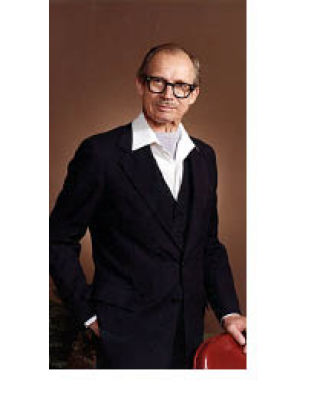Canterbury Theodore (Barry) Hatten was born August 24, 1917 in Richview, Ind. and died at his home in Eastsound on August 17, 2008. He was born of young missionaries and while a small child moved with his older brother and parents to Seward, Alaska. His parents were in charge of an orphanage for children whose parents had died in the flu epidemic or of TB. His father’s first act was to assign a teacher to each table of children so that instead of the teachers having superior food, everyone ate the same food. Soon a vegetable garden and donations of moose killed on the railroad track improved the diet. Later Barry’s friends were to say that the Hattens didn’t make Christians out of the Indians, the Indians made Indians out of the Hatten boys.
Barry developed TB of the bone in his left leg, and the Alaskan doctor wanted to amputate it, but his father brought him outside to a famous French doctor at Swedish Hospital, who saved it. Later a recruiter refused to allow him to enlist during WWII, accusing him of having had infatile paralysis. He longshored and worked on the railroad in Alaska in spite of the bad leg. When he went away to school first at DePauw in Indiana and later the UW, he rode the rails and smuggled aboard a streamer at least once to get to his destination. After he received his law degree, he practiced union, civil rights, criminal and poor people’s law. During the witch hunt he defended professors being fired by the University of Washington. His brother-in-law Ralph Gundlach was one of them. He longshored in San Francisco during WWII and later in the fifties when his practice had shrunken because of the free time he had contributed to witch hunt victims leaving little time for paying clients and fear of some clients. He had a nearly fatal car accident after long-shoring heavy cargo all night in 1954 with two skull fractures, four jaw fractures, two leg and one arm fracture. He then practiced law again until he developed cancer of the larynx. This was first treated by radiation, and when it returned he was told he had only six weeks to live, by surgery. This was on his birthday in 1974 and he was free of cancer until it returned in his liver, proving fatal.
From the time he recovered from the surgery of 1974 until retirement after more than 50 years of practice, he had a storefront office in the International District in Seattle. He won a murder case in which the minority defendant had shot the victim three times, the last while he was lying on the ground. The prosecuting attorney was so outraged by this that he kept asking for cases against Barry but never managed to beat him.
Barry was married first to Jean Gundlach, then to Louise Seifert with whom he had two sons, John Barry and Charles Theodore, then to Mary Telford Gibson with whom he lived more than forty years. He is also survived by four grandchildren and numerous beloved nieces and nephews. He told Mary to tell his friends when he was gone that he “had gone back to Alaska.” Go in peace, darling Barry, the sea lions and children will smile at you.
Memorials may be made to United Farm Workers, P.O. Box 62, Keene, CA 93531; Local 37, ILWU, 4700 42nd Ave. S.W., Seattle, WA 98116; or Lahari, P.O. Box 50, Deer Harbor, WA 98243.
Obituary submitted by the Hatten family.




